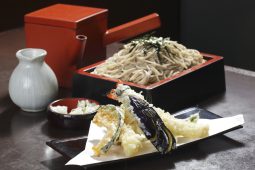Today, we’ll be looking at some tips on how to save money in Japan. Part of this has to do with cost of living staying more or less the same while a lot of people have less work than before, but really, it’s useful to know anyway. Some of my other articles already touch on this so I’ll just summarise a few things: Take public transport when you can, buy second hand, combine advice on food here with what I’ve written in the past, and if you do travel, mix and match between what I’ve written in the past and will write here. With that out of the way…
1) Food
A lot of what I wrote before covers cheap food, yes, but not the cheapest, and mostly not for home cooking. Let’s dig into groceries a bit more here.
Firstly, look for industrial/catering supermarkets, ‘gyoumu suupaa‘ romanised, or 業務スーパー. These places count on slim profits from selling in bulk, so they’re far cheaper. They’re also not really advertising to ordinary people so they may take some tracking down, and aren’t a given in more remote areas, but it’s worth a shot. Be sure to have some storage space at home, though. These can get very, very cheap for large amounts of basic foods.
For more ordinary supermarkets and department stores, try visiting as they’re starting to wind down. Ready-made foods (I’m talking rice balls, bentou, fried foods etc., not boxes of chocolate) will drop in price dramatically as the night goes on. Usually you can also find a box or something with a collection of random leftovers on sale that day, and if you’re lucky, a ‘wake-ari‘ (分けあり)selection of fruit and vegetables that, while perfectly good, are selling for a fraction of the price because of bruises or something.
For the late-night category, you want to be there in the evening, but not as late as, say, midnight. 8~9PM+, before it all vanishes from the shelves, should do the trick.
Finally, vacuum up every point card in sight, register for the Line accounts of various places so they can send you vouchers, search the leaflets that show up in your mailbox for discounts, etc. This will render your Line account basically unusable if you overdo it, so just get a dummy account for that. I promise I won’t tell them.
2) Travel
This is mostly covered in the past, except for the matter of bicycles for medium distances (though, a bicycle is an investment), and kaisuuken (回数券), a multiple-use ticket sold at a discount. For long-term travel, I also recommend the Seishun 18 ticket, an infinite use ticket solely for slow trains over a five-day period, during the school holidays. More on that here to save space.
3) Rent
Not much to be done here, but if you’re looking for a place to live now, avoid places that have various forms of payment to get started (shiki-kin, reikin, kagi-kin, etc. ) The bright side is that tenant law is improving so they can’t actually find excuses to keep your security deposit quite as readily these days. Also, maybe look into living somewhere that’s not the biggest city you can find, if that’s an option for you at all. I have no idea how anybody in Tokyo affords rent. If you’re okay with it, then obviously, roommates will always help with this.
4) Other shopping
Need to buy things that aren’t food? It’s worth taking a look at Don Quijote if you have a local one handy, but personally I have far more luck with 100 yen stores. I got a lot of perfectly good household tools and so on there that have lasted me more than two years; you’re technically getting worse quality for your money, but it’s cheap and still very good, so does it really matter? Just be sure to go in with a set budget or a particular shopping list; sidetracking you with things you don’t need is their entire plan. Between this and second hand, you can cover a lot of things.
Oh, and Rakuten is handy, although it’s a network of endless sprawling independent shops for the most part, so it’s going to be inconsistent. Still, if you have time to hunt for discounts and sales, it’s probably the most rewarding version of online shopping in that sense.
5) Utilities
I say ‘utilities’, but water and gas are fairly non-negotiable, and especially in the latter case, a bit hard to waste (if you leave gas burners on for fun all day, I can’t actually help you, sorry). The big culprit here is electricity. Now, if you use a computer to work, that’s… actually a bit of a tough one. Try to turn it off or put it in sleep mode when it’s not in use, I guess; that’s good for your PC anyway. Lights off when not in use etc., but you probably know these things already. The real question here is ‘please, how do I save on the AC without the weather being horrible at me?’
For summer, the answer is electric fans. Yes, plural if needed; it’s still going to be so much cheaper than the AC, and if you’re not in the same room as the AC unit, quite possibly more effective too. By the time you read this, it’s going to be December or something, so let’s try something a bit more timely instead. If you’re cold, I can recommend heavy blankets, and (especially when you sleep; this one’s nice anyway) a hot water bottle. I’ve seen some recommend a metal one, but personally I use a plastic one and wrap it up in a cloth bag, partly so it doesn’t ‘sweat’ onto the bed, and partly to make the surface a bit less bumpy. This is a job for the 100 yen shop, by the way.
If you live somewhere that’s actually cold and this isn’t cutting it, invest in a fan heater. Cons include needing periodic ventilation with it, an initial investment (less if second-hand), and needing to buy kerosene to fuel it… but on the other hand it’s still way cheaper than achieving the same level of heat through the AC. You take what you can get. Wearable blankets and fluffy slippers are also helpful.
I’ve also heard electricity is cheaper between 11 PM and 7 AM — this hasn’t been my experience, so this deal and its timeframe probably depends on your provider. Worth checking, though.
That about wraps up my suggestions for now — entertainment is a whole other matter that would take its own article. Hopefully, this will help and mean you don’t have to balance between costs and comfort!








